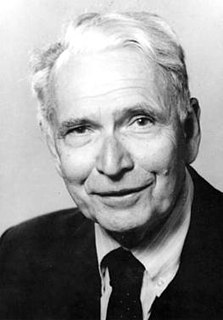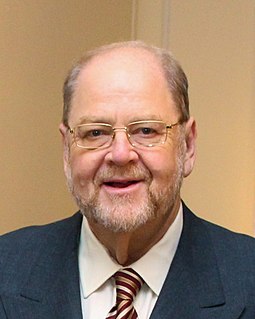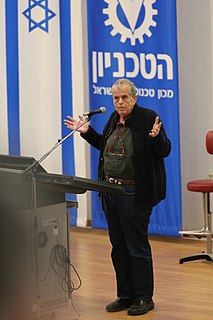A Quote by Erwin Chargaff
Molecular biology is essentially the practice of biochemistry without a license.
Quote Topics
Related Quotes
If belief in evolution is a requirement to be a real scientist, it’s interesting to consider a quote from Dr. Marc Kirschner, founding chair of the Department of Systems Biology at Harvard Medical School:
“In fact, over the last 100 years, almost all of biology has proceeded independent of evolution, except evolutionary biology itself. Molecular biology, biochemistry, physiology, have not taken evolution into account at all.
The second half of the 20th century was a golden age of molecular biology, and it was one of the golden ages of the history of science. Molecular biology was so successful and made such a powerful alliance with the medical scientists that the two together just flourished. And they continue to flourish.
We know from astronomy that the universe had a beginning, from physics that the future is both open and unpredictable, from geology and paleontology that the whole of life has been a process of change and transformation. From biology we know that our tissues are not impenetrable reservoirs of vital magic, but a stunning matrix of complex wonders, ultimately explicable in terms of biochemistry and molecular biology. With such knowledge we can see, perhaps for the first time, why a Creator would have allowed our species to be fashioned by the process of evolution.
It is now widely realized that nearly all the 'classical' problems of molecular biology have either been solved or will be solved in the next decade. The entry of large numbers of American and other biochemists into the field will ensure that all the chemical details of replication and transcription will be elucidated. Because of this, I have long felt that the future of molecular biology lies in the extension of research to other fields of biology, notably development and the nervous system.
It could be that at some earlier time, somewhere in the universe, a civilization evolved by probably some kind of Darwinian means to a very, very high level of technology- and designed a form of life that they seeded onto perhaps this planet. And I suppose it's possible that you might find evidence for that if you look at the details of biochemistry, molecular biology, you might find a signature of some sort of designer.
Scientific practice is above all a story-telling practice. ... Biology is inherently historical, and its form of discourse is inherently narrative. ... Biology as a way of knowing the world is kin to Romantic literature, with its discourse about organic form and function. Biology is the fiction appropriate to objects called organisms; biology fashions the facts "discovered" about organic beings.
































